The market for futuristic showerheads is growing due to improved technology, increased construction of new building projects, and growing customer demands for showers that do more than just clean.
In this blog, we’ll cover what you should look for in showerheads as well as some varieties that are currently taking off among consumers, helping you to fulfill their growing expectations.
Table of Contents
Global market potential for showerheads
How to choose the right showerheads
An overview of popular showerhead designs
Conclusion
Global market potential for showerheads
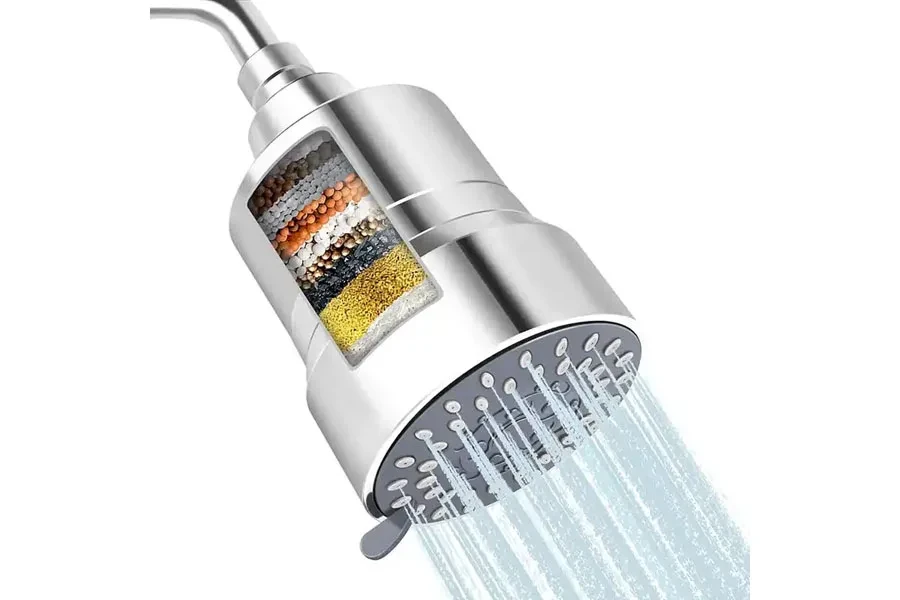
Global market research shows that innovations are behind showerhead sales, with figures indicating that the market was worth US $8.07 billion in 2023 and will grow at a CAGR of 8.4% to reach US $16.72 billion by 2032.
Fixed showerheads are responsible for the bulk of these sales, and real estate expansion, especially in the Asia-Pacific region, are anticipated to be the strongest drivers behind purchases of these products.
Google Ads shows that “showerheads” received 368,000 searches in December 2022. In November 2023, this search rate rose to 450,000 – an increase of 22%.
In addition, the global drive to save water is helping to push high-tech innovations in the manufacturing of showerheads. This drive extends to the recycling of wastewater and the manufacturing of water-saving devices.
However, because many different types of showerheads exist, it is vital to understand differences in performance and the conditions in which they excel.
How to choose the right showerheads
Selecting an appropriate range of showerheads for different customers requires focusing on their features (performance) and design styles.
Features to consider when choosing showerheads
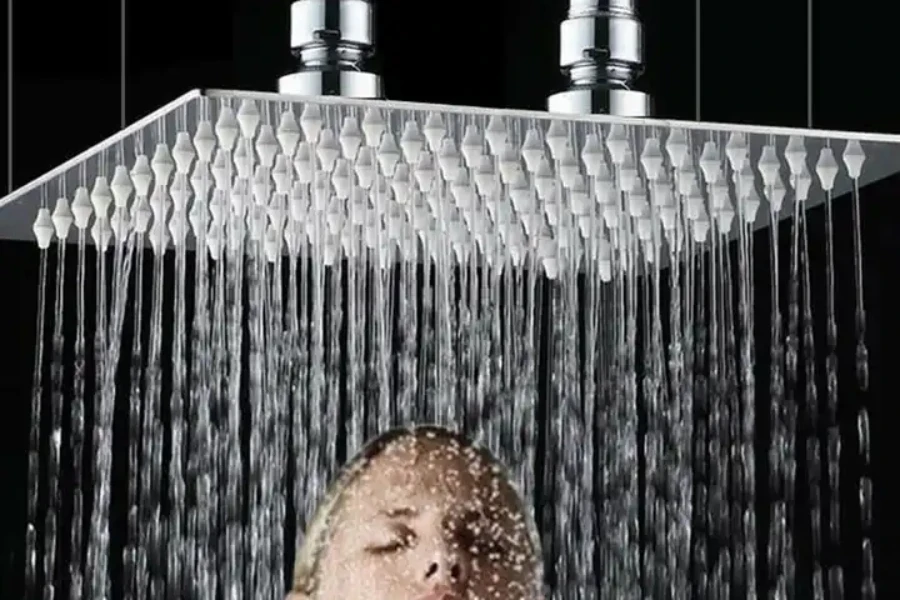
Five main factors are likely to affect a consumer’s showerhead choices. The main one, as we’ll discuss in further detail below, is their home’s water pressure. Once they know this, they’ll want to consider a showerhead’s flow rate, water-saving features, spray patterns, and materials.
1. Water pressure
The best way to determine what water pressure is in the home is to test it with a pressure gauge. The water pressure (force at which the water is ejected out of a pipe) differs from the flow rate (how much water flows out).
2. Water flow rate
Customers can test the flow rate by timing how long it takes to fill a bucket. This rate is measured by how much water the showerhead receives every minute.
A medium flow rate of no more than 2.5 GPM (gallons per minute) is mandatory in some countries. But some manufacturers make showerheads that only produce 1.75 GPM and 1.5 GPM, meaning that they save up to 40% water compared to 2.5 GPM products.
3. Water-saving features
Some modern showerheads have built-in water-saving features. Stocking these products will help your customers meet local regulations and save money. Look for certified water-saving labels to know whether heads feature such technology.
Nowadays, opting for such innovations does not mean you must sacrifice the quality of your shower time as these features balance water savings and flow rates to ensure a pleasant shower experience.
4. Spray patterns
Showerhead spray patterns can usually be adjusted to be more gentle or forceful. Knowing the functions of a specific showerhead will help to pick ones that work best in specific conditions.
Some showerheads can also adjust the flow rate. Overall, it pays to understand how your customers’ purchases will affect their water savings and enjoyment of a good shower.
5. Materials
Plastic shower heads are typically more cost-effective than stainless steel products but may be more prone to breaking. Retailers should consider stocking a selection of showerhead materials for their particular target markets.
An overview of popular showerhead designs
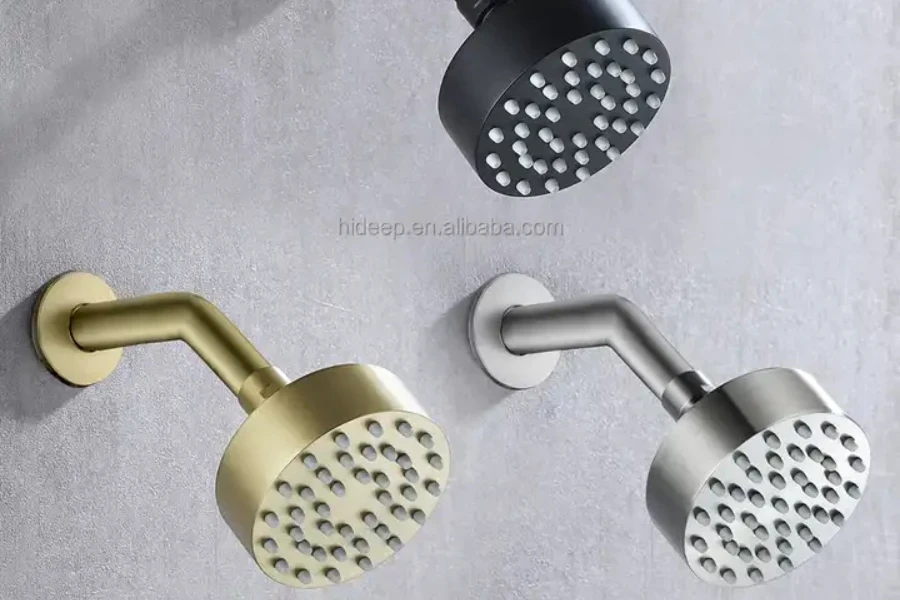
Buyers can diversify their showerhead inventories to include different variations in design, budgets, and water pressure.
Below we’ll take a look at the most popular showerhead styles so that you can stock a range of items that are likely to appease most consumers today.
Fixed showerheads
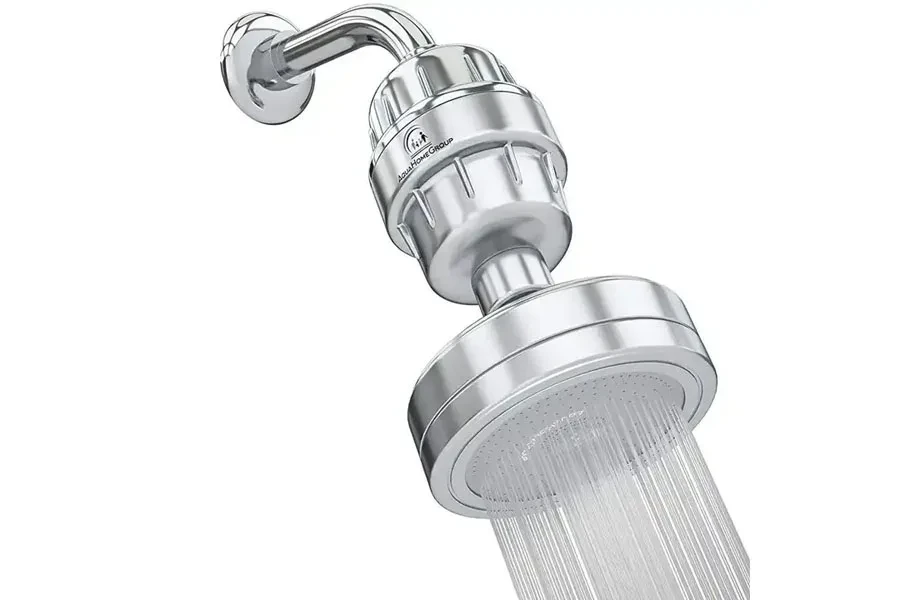
Fixed showerheads, as the name suggests, are fixed to the wall at a certain height. The angle of the head can be adjusted, but the flow rate is only adjustable via the faucet.
While being economical, fixed showerheads are less versatile than other types of showerhead. However, because they are basic and affordable benefit, they may be more suitable for entry-level or cash-strapped homeowners.
Rain showerheads
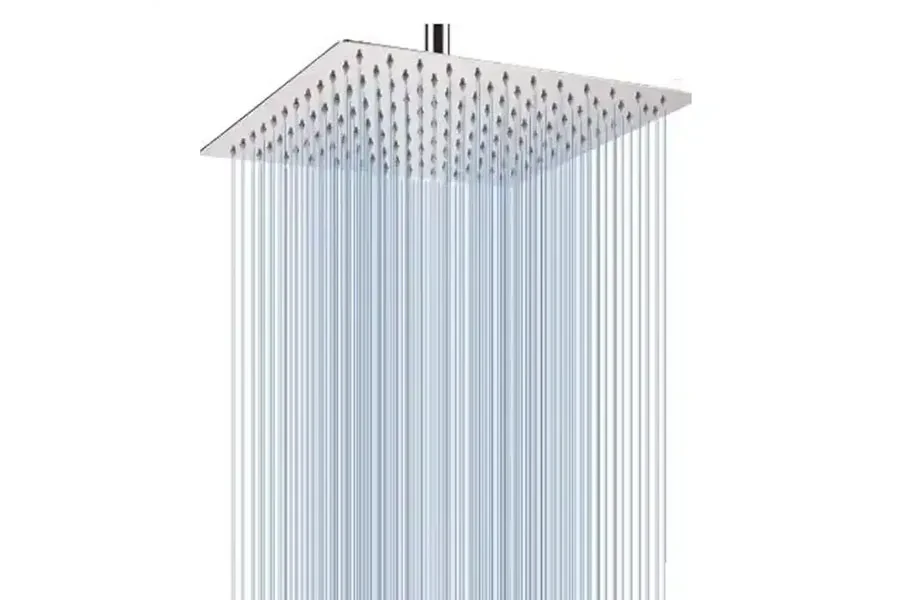
Rainfall showerheads are ideal for high-end luxury markets. They are made from various materials, come in a wide water distribution patterns, and often boast multiple functions. Customers can mount them on the wall or ceiling.
Because of their design, some rainfall showerheads feature water pressure up to 1.5 times stronger than regular showerheads. They can also help to save up to 36,000 liters (7919 gallons) of water annually.
Dual showerheads
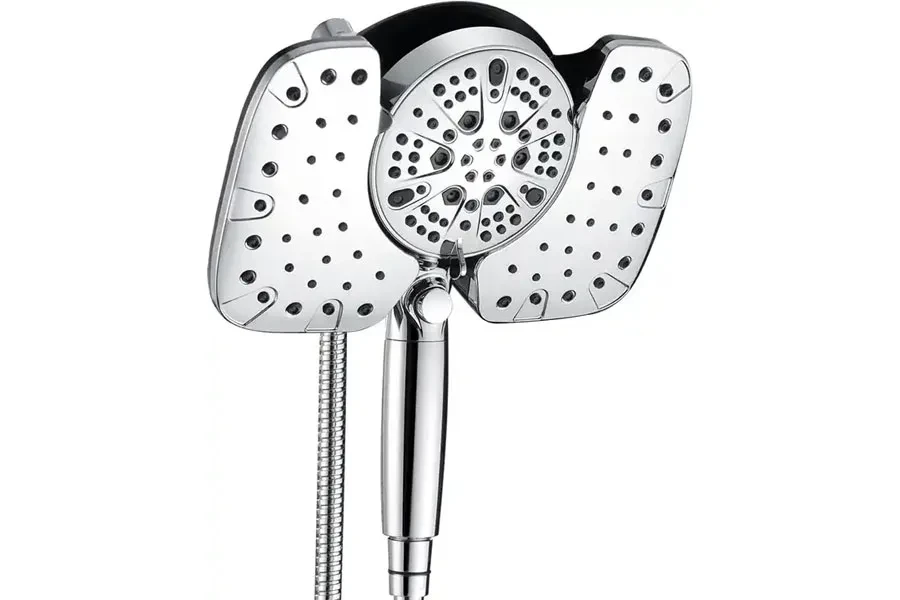
Made for the medium to high-end market, dual shower heads offer a different experience to the options above in that they can be used separately or together for a focused spray and a gentle rinse.
Some designs also come with up to 10 spray patterns, including a rotation mode and a rain pattern spray.
Handheld showerheads
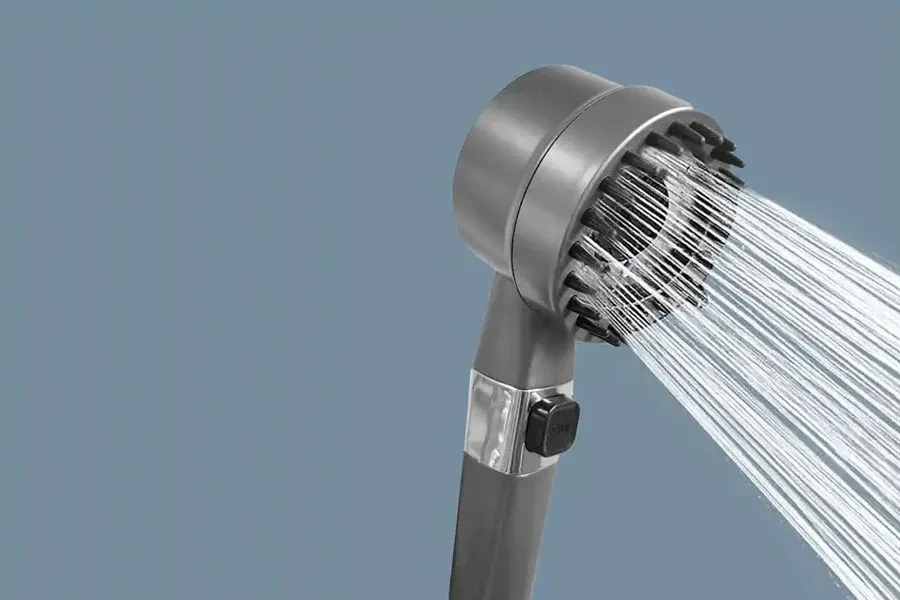
Handheld showerheads sit in a cradle fixed to the wall and the fwater flows from the mains via a connecting hose. Users simply remove the showerhead when needed and adjust the water level. Some versions also come with on/off button on the shower itself so you don’t have to turn it off at the mains.
Conclusion
To be successful in the modern showerhead market, retailers are advised to first identify their markets against the background of market growth and product considerations. After narrowly defining their customer segment, improve your inventory by researching the latest trends as well as models available.
To browse a huge selection of modern showerheads from thousands of trusted sellers, visit the Chovm.com Showroom today.
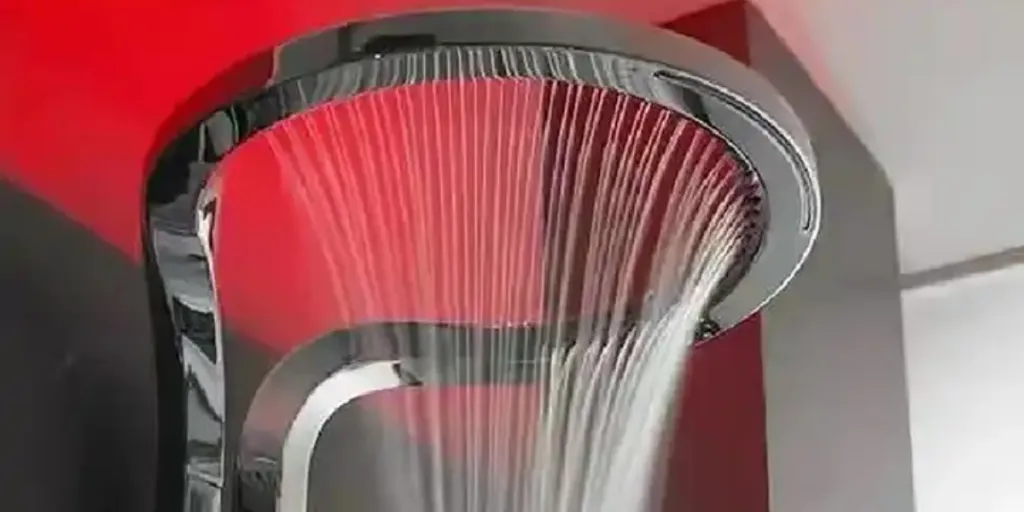




 বাংলা
বাংলা Nederlands
Nederlands English
English Français
Français Deutsch
Deutsch हिन्दी
हिन्दी Bahasa Indonesia
Bahasa Indonesia Italiano
Italiano 日本語
日本語 한국어
한국어 Bahasa Melayu
Bahasa Melayu മലയാളം
മലയാളം پښتو
پښتو فارسی
فارسی Polski
Polski Português
Português Русский
Русский Español
Español Kiswahili
Kiswahili ไทย
ไทย Türkçe
Türkçe اردو
اردو Tiếng Việt
Tiếng Việt isiXhosa
isiXhosa Zulu
Zulu